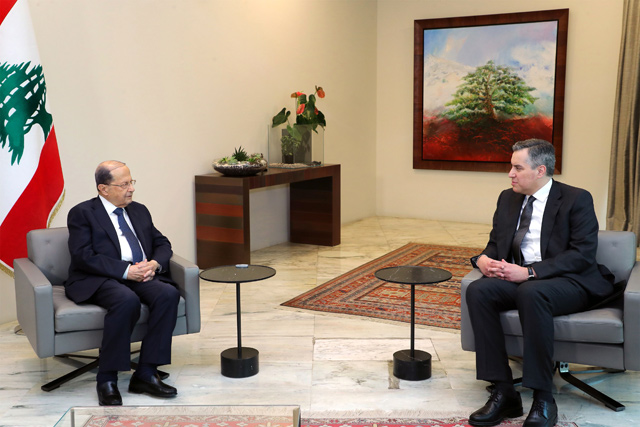BEIRUT — Lebanon's premier-designate stepped down on Saturday, saying he had been unable to form a reform-minded government to lift the country out of its worst economic crisis in decades.
Lebanon's last government resigned in the aftermath of a colossal blast in Beirut port on August 4 that killed more than 190 people, wounded thousands and ravaged swathes of the capital.
Since his nomination on August 31, Mustapha Adib has been under pressure to form a new Cabinet as soon as possible to carry out the necessary reforms to unlock billions of dollars in foreign aid.
"I excuse myself from continuing the task of forming the government," Adib said in a televised speech.
"I apologise to the Lebanese people... for my inability to realise its aspirations for a reformist team," he said.
Government formation usually takes months in multi-confessional Lebanon, which has operated a power-sharing arrangement ever since a devastating 1975-90 civil war that requires consensus among the main parties on major decisions.
Adib's efforts to come up with a new line-up have been effectively blocked by the two main parties representing Lebanon's large Shiite community — Amal and Hizbollah.
The two parties have refused to budge on their demand to keep the finance ministry under their control, a position analysts say is linked to recent US sanctions against a former minister from Amal, as well as Hizbollah-linked businesses.
Adib, a little-known 48-year-old former ambassador, was named just hours before French President Emmanuel Macron made his second visit to the country since the August 4 blast, pressing for the speedy formation of a reformist government.
Macron said he had secured commitments from all of Lebanon’s political parties to help Adib form a new Cabinet within a fortnight, but that deadline came and went.
Adib said it had become clear he no longer had support from all political forces.
“As the efforts to form a government reached their final phase, it became apparent to me that this consensus... was no longer there and that forming one according to the criteria I had determined was bound to fail.”
President Michel Aoun accepted Adib’s resignation and was set to “take the appropriate measures according to the requirements of the constitution”, the president’s office said.
“The initiative launched by French President Emmanuel Macron is still ongoing and still receives my full support,” it quoted Aoun as saying.
Even before last month’s blast, Lebanon was already mired in its worst economic crisis since the civil war and battling the novel coronavirus pandemic.
The Lebanese pound has plummeted in value, and poverty rates have doubled to more than half the country’s population.
Just Wednesday, as frustrations grew over the delay in forming a new government, France urged the international community to apply strong and unified pressure on Lebanon.
Aoun had warned on Monday the country was headed to “hell” if competing political forces did not step up and help Adib form a new cabinet.
After the August 4 explosion, it emerged the Lebanese authorities had known about the huge stockpile of ammonium nitrate fertiliser that exploded on the dockside, but had not moved it.
The port blast has rekindled public anger against Lebanon’s entrenched political elite, with protesters accusing politicians across the board of incompetence and corruption.
